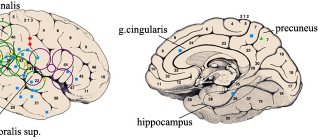A person suffering from epilepsy will not be able to get a job in some professions, since there are special legal restrictions for epileptics. During an attack, a person with this disease can harm himself or other people, so epileptics should not work as a surgeon, driver, pilot, builder, and so on.
People suffering from epilepsy especially need work that would bring them moral satisfaction. This is how a person feels needed by society and pays less attention to the manifestations of his disease. Since such people have a somewhat reduced ability to work, not all professions are suitable for them. Before getting a job, any citizen undergoes a medical examination to determine the suitability of their health status. If any controversial situations arise, all issues will be resolved by a special clinical expert commission.
Persons with epilepsy should not operate moving machinery, drive vehicles, or work in a mine, at heights, or in water. In all of the above cases, when an epileptic seizure occurs, a dangerous situation can arise. Despite this, there are still many professions suitable for people with epilepsy.
Of course, when choosing a profession, in addition to illness, one must take into account a person’s individual inclinations, desires and aspirations. Experts count about a thousand professions suitable for people with epilepsy. Some of them can be called: auto mechanic or auto technician, agronomist or gardener, librarian and bibliographer, accountant, tailor, photographer, artist, biologist.
People with epilepsy usually perform the work entrusted to them conscientiously, although somewhat slower than healthy people. They are characterized by accuracy and hard work. Therefore, it is worth choosing professions that require scrupulousness and precision, but do not require urgent, quick execution.
Fact: Many people with epilepsy are highly skilled workers in various fields and industries!
Prohibited professions
Work that people with epilepsy should not do:
- absolutely any work that takes place at height;
- maintenance of lifting structures;
- maintenance of electrical installations with voltages of one hundred and twenty-seven volts and above;
- profession related to animal husbandry;
- maintenance of hostels and hotels;
- work in which various machines are used (lathes, milling and others);
- drivers of various vehicles;
- construction industry;
- plumbing;
- printing production;
- trade;
- cooking;
- connection;
- healthcare;
- mechanical engineering;
- energy;
- metallurgy;
- hairdresser;
- watchmaker;
- wood processor;
- florist;
- jeweler;
- engraver;
- product technology;
- chemical technologies;
- some specialties of education;
- cook;
- miner;
- geologist;
- art.
The list of prohibited work does not end here, but it is worth understanding that everything depends on the individual case and the degree of the disease. For a more accurate understanding, a person needs to undergo a thorough medical examination and consult with a potential employer.
It should be noted that seizures are quite dangerous, since during them a person can cause harm both to himself and to people nearby. A patient with epilepsy must be aware that there may be danger and impose special restrictions on themselves. If attacks occur rarely, then there are practically no restrictions. Restrictions include: altitude and water controls. For example, water treatments are best taken in a sitting position.
There is one extremely unpleasant moment. If attacks of the disease are constant, then the range of possible professions is significantly narrowed. Work that involves frequent contact with people is immediately excluded. An epileptic who suffers from fairly frequent seizures and intellectual degradation belongs to the second group of disabilities.
Many people mistakenly assume that sedentary office work will be safe for epileptics, but this is not the case. Office is stress, emotional distress, tension and everything that can later lead to an epileptic attack.
Epileptics receiving refusals from employers often despair and give up all attempts to find a normal, well-paid job.
In order to find a good profession, you first need to clearly complete the following three steps:
- Make a correct, clear diagnosis in a medical institution and carry out effective treatment. This stage is fundamental and most important, since you need to really accept your illness and begin to take steps towards recovery.
- It is necessary to understand as accurately as possible all the responsibility for yourself and especially for other people. It is advisable to listen to the recommendations of your doctor regarding this issue.
- Maintaining a correct lifestyle and a correct daily routine.
Where should people with epilepsy not work?
Russian legislation defines types of activities that people with epilepsy are prohibited from engaging in: working at heights, near fire or water, working with dangerous devices and mechanisms. You cannot become a pilot, a surgeon, a hairdresser, a driver, you cannot jump with a parachute. In short, to work in all those areas where, in the event of an attack, a person can be dangerous not only for himself, but also for others. This list is fixed by Resolution of the Council of Ministers - Government of the Russian Federation dated 04/28/1993 No. 377 and Order of the Ministry of Health and Social Development of Russia dated 04/12/2011 No. 302.
There is also a ban on employing people with epilepsy in public service.
These prohibitions do not take into account the severity of the disease and the current condition of the person with epilepsy. A person whose epilepsy is in remission and has not had seizures for many years could easily perform many types of office work and be effectively implemented in the profession, including in the public service.
But in practice, people with epilepsy very often face refusal to hire, and not only where there is a direct ban. As soon as a potential employer hears about a candidate’s diagnosis, a plausible excuse is found to refuse him.
The stigmatization of epilepsy in society and low awareness among employers leads to the fact that people have to hide their diagnosis when applying for a job. Meanwhile, it is better for colleagues to know about the disease, so that in case of an attack they do not get scared, but help the person.
Professor Pavel Vlasov told the story of one of his patients, who was fired from customs, despite the fact that he worked on a computer and had permission from doctors for such activities. He tried to get justice in court, but the court refused on the grounds that people with epilepsy are prohibited from working in public service.
A much more positive story was told by an employee of a recruiting company, Alina Pribylnova, who was diagnosed with epilepsy at the age of nine. She managed to get a job at a company where they treat her illness with understanding and do not consider it an obstacle to professional activity. But not on the first try - the first experience was unsuccessful.
Like most people with epilepsy, she kept her diagnosis quiet during the interview, and it was only revealed when she had a seizure in the office. The next day, the boss asked her to write a letter of resignation of her own free will, explaining that such attacks spoil the image of the company, because clients could witness them.
At another place of work, Alina also did not report her illness, but when the attack occurred, her colleague and friend was already aware and knew what to do. The bosses did not ask Alina to resign - partly because they valued her professional qualities, but mainly because this international company has a stricter attitude towards respecting human rights.
According to Anastasia Kovaleva, Alina’s boss, people with epilepsy only need a little more attention. Alina was given a workplace closer to the window, where there is more fresh air. The boss learned to notice signs of an aura and, if necessary, let Alina leave work a little earlier. “I know that the next day, when she feels good, she will make up for everything a hundredfold,” says Anastasia Kovaleva. According to her, in Alina the company has an excellent professional with high performance indicators.
Some may think that this is too difficult: creating special conditions for an employee with epilepsy and taking care of him. But any employee can have an aggravated chronic disease, from radiculitis to cystitis, or simply have a headache, and then he will have to be sent home earlier. We perceive such things quite calmly, but for some reason we refuse to understand people with epilepsy.
Maybe it's time to change stereotypes and understand that everyone has the right to care and attention? Should we start evaluating employees based on their professional qualities, and not on the diseases they have?
Permitted professions
Where can an epileptic work and still receive a stable and good salary? In fact, there are a huge number of options:
- programmer;
- telecommunications operator;
- tailor;
- fashion designer;
- computer operator;
- artist;
- accountant;
- testing of semiconductor structures;
- postal service;
- modeling and design of clothing;
- poultry farming and beekeeping;
- controller of the finished product.
In addition, patients with epilepsy can engage in freelancing. If a person has certain special abilities, then he can easily create websites, draw logos, write commercial texts and much, much more that can be found on various freelance exchanges. It is worth understanding that for some epileptics, the flickering of a computer monitor and TV can cause an attack, so you should first consult with your doctor.
Fact: frequent seizures of epilepsy largely limit the patient’s ability to work.
Let's talk about a topic that is relevant to many: work and epilepsy
Patients with epilepsy consider finding a job one of their main problems.
Work and epilepsy
In many countries around the world, the unemployment rate among patients with epilepsy is high and reaches 50%. The same picture is observed in Russia. Of the total number of patients registered at dispensaries, 50–60% are employed.
After graduating from secondary school, patients with epilepsy are less likely than healthy people to improve their qualifications by attending additional courses. Most of them are employed in unskilled labor.
Prejudice against epilepsy is a serious factor limiting the employment of young people with this disease. Employers refuse to hire people with epilepsy after learning about the diagnosis. Patients with epilepsy often hide their diagnosis when applying for a job so as not to lose the opportunity to find a job.
The decision to select for a particular type of activity should be made by the employer, first of all, on the basis of the skill level of the individual, and not on the basis of an existing diagnosis.
Therapeutic effect of labor
Today, more than half of people with epilepsy work. Thanks to modern treatment methods, most patients achieve stable compensation. In addition, work and social activities reinforce the therapeutic effect. A person who is engaged in an interesting activity develops new dominants in the brain. These are positive foci of excitation that suppress the effects of pathological ones. Experts note that those patients who work have seizures during periods of wakefulness much less frequently than those who are unemployed.
In addition, at work or school, people with epilepsy prefer to look up to healthy people and adhere to their lifestyle. Thanks to this, manifestations of the disease such as severe irritability, excitability, and selfish tendencies are smoothed out. In return, endurance, the ability to overcome troubles, and self-control are developed.
Is epilepsy incurable?
Epilepsy cannot be completely cured, but it can be controlled. According to Professor Pavel Vlasov, a member of the European Academy of Epilepsy, 78% of people with epilepsy can work, have a family, play sports and live a normal life, provided they follow three simple rules:
- Take medications prescribed by your doctor
- Get enough sleep
- Give up alcohol
As Pavel Vlasov said, sometimes epilepsy “goes away.” If a patient with epilepsy has been seizure-free for two years, doctors may consider stopping antiseizure medications. Then they talk about epilepsy in remission or even in history, and the person is no different from those around him.
Sometimes the patient has lifelong therapy. It is important to choose the right medications so that they do not cause unwanted side effects.
Exacerbation of the disease
Epilepsy is a disease that can cause exacerbations. Then the seizures become more frequent or severe. In such cases, it is better for patients to temporarily change their job to an easier one, or go on vacation. An exacerbation of the disease is not a reason to remove a person from work if it is not contraindicated for epilepsy. People around you should pay attention to a person suffering from this disease. His future condition depends on how employees and relatives perceive what is happening to a person.
Work at home
If the health condition does not allow a person with epilepsy to work in production, simple work can be done at home. Work as a knitter, embroiderer, or computer typing operator is suitable for epileptics.
In addition, you should not remove the patient from home work. He is quite capable of buying groceries, washing dishes, preparing dinner, and cleaning. The exception is during periods of exacerbation, when seizures occur suddenly and are often repeated. At such times, people with epilepsy should not cook food, iron clothes (due to the risk of burns), or wash windows (to avoid falling). In short, you should not leave patients with epilepsy alone near turned on electrical appliances or a gas stove during periods of exacerbation of the disease.
Epilepsy and employment: does an employer have the right to fire an employee due to a seizure?
Finding employment is not an easy task for anyone, but for people with epilepsy it is a real challenge.
Dmitry Z. turned 18 in July, and he was faced with the question of finding a job. On the Internet, the young man found a vacancy as a sales consultant in a construction hypermarket in Yekaterinburg. After passing the interview, the young man received the position, but he only managed to work in the new place for only a short time: two weeks later he had an epileptic seizure. Colleagues were scared, and the next day the managers of the hypermarket asked Dmitry to write a letter of resignation of his own free will.
Due to inexperience and ignorance of his rights, the young man quit himself.
Dmitry became an epileptic 8 years ago. His attacks are infrequent and mostly nocturnal. Therefore, this does not particularly bother him in life. However, as it turned out, it is almost impossible to get and hold a job with epilepsy. Before reaching the age of 18, the young man more than once encountered the fact that employers refused him even unofficial employment after learning about his illness.
However, Dmitry does not have a disability. Doctors believe that the disease does not interfere with the young man’s life.
“A person with epilepsy who also has some other intellectual component, mental retardation, for example, can become disabled. It’s just that someone with seizures won’t give you a disability. Moreover, if they are not private, isolated and do not interfere with the quality of life,” said CSTO epileptologist No. 1 Artem Volodkevich.
According to him, people with epilepsy cannot work at heights, on the railroad, or in the kitchen. The positions of driver, hairdresser, miner, geologist and others are also prohibited. However, the work of a programmer, fashion designer, accountant, artist, or operator is quite suitable for epileptics. It should be calm and non-risky, so that in the event of a possible attack, harm will not be caused to people around.
“It is certainly possible to work as a sales consultant in such cases,” Volodkevich believes.
From a legal point of view, an employer does not have the right to fire an employee for an epileptic seizure, and the managers of the Yekaterinburg construction hypermarket broke the law by firing Dmitry.
“The employer had no right to fire him. This is forced resignation. These issues are resolved in the courts, this is a violation,” the labor inspectorate told EAN.
According to lawyers, it is quite difficult to prove the fact of coercion. However, if a person still has correspondence or recorded telephone conversations, then coercion is provable.
“A sales consultant is not a position for which you need to undergo a medical examination, there are no special health requirements in this case. The fact that he had a seizure at work is not grounds for dismissal at the employer’s initiative, it is not a disciplinary offense, Dmitry did nothing wrong,” the lawyers say.
According to them, even if an employee hit his head hard during an attack and was injured, the employer would not be held responsible for this, since such an injury is not considered work-related.
“The employer is most likely afraid of material losses. For example, if a young man is injured during an attack, the employer will then have to pay him sick leave. And a person with epilepsy can break some goods, this again means material losses and problems,” experts say.
This case is far from the first and not the last, and the law in such situations is constantly violated.
Ekhtiram Sh. from Bogdanovich has been suffering from epilepsy for 13 years, now he is 28. The young man was luckier than Dmitry. He had no significant problems with work, but his illness prevented him from getting the education he dreamed of.
“I was just lucky when I got a job. Employers asked what to do if an attack suddenly happened. I told them everything. There were seizures, of course, at work... The only thing I regret is that because of epilepsy I was not accepted into college. I entered the theater school, EGTI, because I have been singing all my life, one might say. But I was refused. They said it would be a big workload, but they didn’t need such responsibility,” says Ekhtiram.
Now he performs only in restaurants and small concerts. Although the young man does not have a disability either. Doctors do not have a clear opinion whether people with epilepsy can work on stage.
Thus, patients with rare epileptic seizures, who by law have minor restrictions in choosing a profession, are often left without work due to the arbitrariness of employers. And even if you can sometimes be lucky with employment, the range of professions prohibited for epileptics is artificially narrowed by the heads of organizations. At the same time, patients with epilepsy most often do not receive any social benefits from the state.
Photo: pixabay.com
Tips for choosing a profession
Some tips for people who suffer from epilepsy and want to get a job:
- The best option is a job that has a shift schedule. Why? The fact is that such a work routine, firstly, helps to maintain adequate sleep, and, secondly, allows you to regularly and on time take medications prescribed by your doctor.
- When searching, you should not focus on your illness. Epilepsy is not a death sentence.
- When communicating with an employer, you must describe your illness as clearly as possible, especially its degree.
In conclusion, I would like to say that epilepsy is not an obstacle to finding a job or getting an education. A person with epilepsy, like other people, can choose the right profession to their liking and begin to develop qualitatively in it.
What is epilepsy
Epilepsy is a chronic brain disease characterized by recurrent, unprovoked seizures with varying clinical manifestations.
According to the World Health Organization, more than 50 million people worldwide live with this diagnosis. Up to 70% of them can live without seizures if they take anti-seizure medications regularly. But in low- and middle-income countries, about three quarters of people with epilepsy may not get the treatment they need. We must understand that the manifestations of epilepsy are completely different, and this category of patients requires separate observation: despite the fact that the disease has been known for a long time, its genesis is not entirely clear.
The primary goal in epilepsy is to control seizures. After all, for people suffering from epilepsy, the greatest number of problems are associated not only with the manifestation of the disease in the form of seizures, but also with serious psychological disorders: depression, anxiety, low self-esteem, problems with social isolation, and unemployment.
There are clearly defined by law restrictions on social activities for patients with epilepsy: depending on the severity of the disease, they are considered unfit or partially fit for military service. Photo by Oleg Tikhonov







